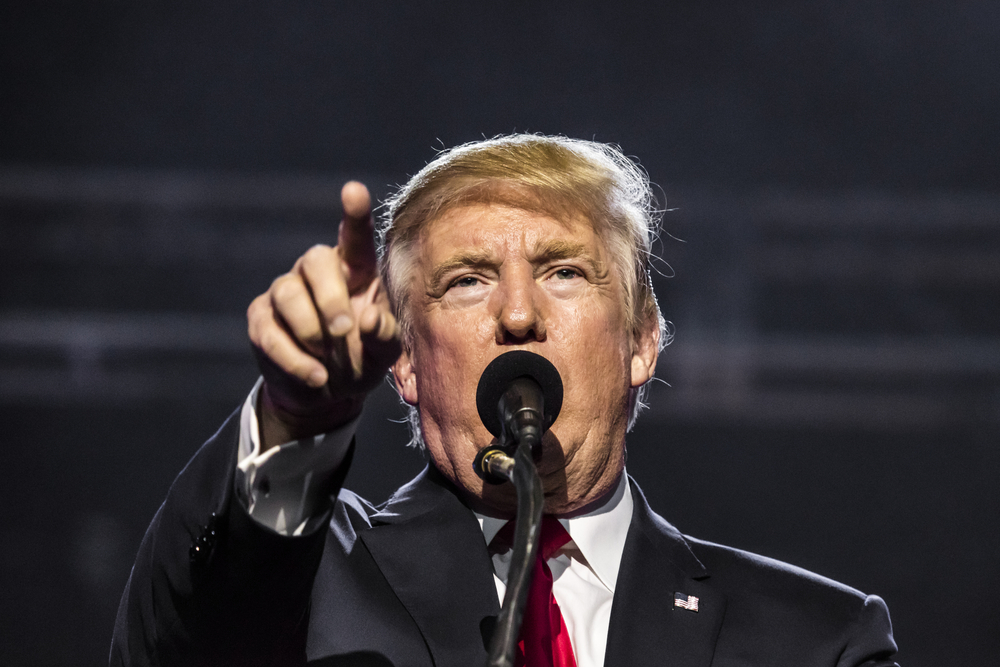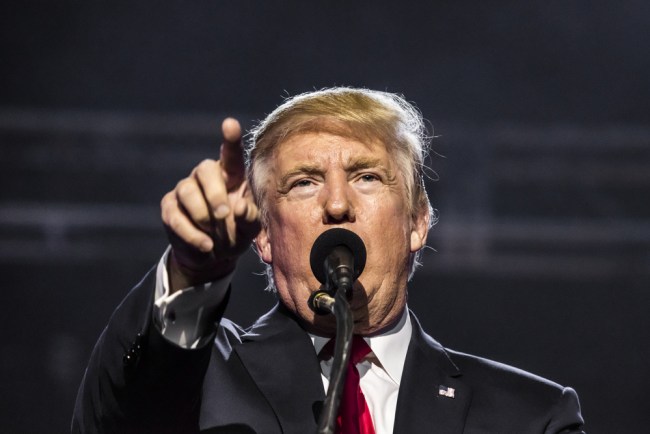New Trump Travel Ban Is Now Indefinite, Still Cruel and Xenophobic


Our xenophobe-in-chief issued the third version of his travel ban on Sunday, just as the second version was set to expire. This new version of the ban adds restrictions to three additional countries (Chad, North Korea, and Venezuela) and removes one previously banned country: Sudan. Iran, Libya, Somalia, Syria, and Yemen are still on the ban list. With more tailored restrictions and the addition of countries with a non-Muslim majority, this new ban may prove more difficult to fight in court, but since these new restrictions are indefinite rather than 90 days long, the fight against them is more crucial than ever.
Despite the removal of Sudan, this new proclamation is undoubtedly more of the same, meant to appeal to the xenophobia and Islamophobia of Trump’s base. It even specifically targets immigrant visas, in case it was unclear that this is about preventing more non-white people from becoming U.S. citizens. “The United States affords lawful permanent residents more enduring rights than it does to nonimmigrants,” reads the proclamation. “Lawful permanent residents are more difficult to remove than nonimmigrants even after national security concerns arise, which heightens the costs and dangers of errors associated with admitting such individuals. And although immigrants generally receive more extensive vetting than nonimmigrants, such vetting is less reliable when the country from which someone seeks to emigrate exhibits significant gaps in its identity-management or information-sharing policies, or presents risks to the national security of the United States. For all but one of those 7 countries, therefore, I am restricting the entry of all immigrants.”
Even in its official language, this proclamation views permanent residents’ rights as some sort of burdensome, unnecessary security concern.
For nonimmigrants, the restrictions are still quite severe, but they vary by country. Citizens of Chad, Libya, and Yemen won’t be allowed to enter on non-immigrant business visas; only students and exchange visitor visa-holders from Iran are still allowed entry; nonimmigrant Somali nationals will be subject to additional scrutiny; North Korea and Syria are banned entirely; the restrictions on Venezuela are mostly limited to government officials and their families. You can read more on the specifics for each country in the proclamation itself.
Current visa holders will not be affected, according to The New York Times. “Administration officials said that the new rules would not apply to legal permanent residents of the United States, and that visitors who currently hold valid visas from the countries listed will not have their visas revoked,” the Times reported. “That means that students already in the United States can finish their studies and employees of businesses in the United States who are from the targeted countries may stay for as long as their existing visas remain valid. People whose visas expire will be subject to the travel ban.”
Refugees are not covered in this proclamation, and so an additional executive order and/or presidential proclamation on refugees is expected in the next few days.
These modifications to the ban, while significant, don’t change – and in many ways amplify – its rotten core. As ACLU Executive Director Anthony D. Romero stated: “Six of President Trump’s targeted countries are Muslim. The fact that Trump has added North Korea — with few visitors to the U.S. — and a few government officials from Venezuela doesn’t obfuscate the real fact that the administration’s order is still a Muslim ban. President Trump’s original sin of targeting Muslims cannot be cured by throwing other countries onto his enemies list.”
However, the Trump administration was undoubtedly craftier in its language this time around. According to the text of the proclamation, these restrictions are based on three factors in the countries’ security apparatuses: identity-management information, national security and public-safety information, and national security and public-safety risk assessment. And countries can supposedly be removed from the ban list once they meet certain standards, with one official describing the ban as “necessary and conditions-based, not time-based.”
In an email to Reuters, Saikrishna Prakash, a professor at the University of Virginia School of Law, said that this may make the new version of the ban more difficult to fight in court, because it explicitly claims to be based on a global review of foreign countries’ security capabilities. She wrote, “The greater the sense that the policy reflects a considered, expert judgment, the less the temptation (by courts) to second-guess the executive. It looks less like a matter of prejudice or a desire to fulfill a campaign promise.”
This new ban is set to go into effect on October 18, more than a week after Supreme Court arguments against the current ban are scheduled to begin.
(Via The Washington Post, The New York Times, and Reuters; image via Shutterstock)
Want more stories like this? Become a subscriber and support the site!
—The Mary Sue has a strict comment policy that forbids, but is not limited to, personal insults toward anyone, hate speech, and trolling.—
Have a tip we should know? [email protected]